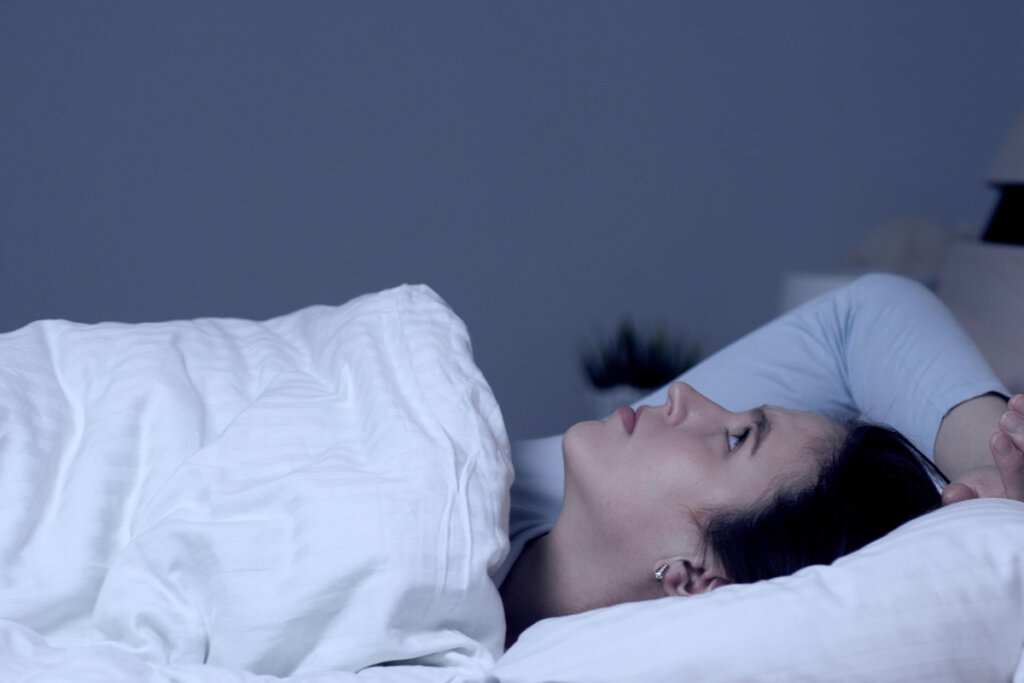My Experiences of Insomnia

I’ve been awake for 48 hours straight before now. In fact, for years, bedtime was a cruel reminder of the impossibility of rest for me. I think my insomnia originated from a loss that I suffered in adolescence and that I didn’t know how to manage. However, I was lucky enough to eventually find some help which saved me.
Being unable to put yourself in Morpheus’ hands and having to rise at dawn, when everyone else is sleeping and everything is dark and silent, is extremely unpleasant. Even though I knew I wasn’t alone, I still felt incredibly lonely.

The consequences of insomnia
Have you ever felt sleepy when you shouldn’t? Although I was unable to sleep at night, during the day I often yawned and even fell asleep in class. My daytime sleepiness was extremely severe.
During the day, normal people do productive things: go to work, school, or university, or hang out with their friends or partners. It was awful not being able to do the things that people who can sleep normally do.
I started failing all my subjects. Despite studying, my performance dropped drastically. Over time, I understood that sleep is a fundamental physiological process for memory.
In fact, it’s thanks to sleep that the transfer of information is retained in the short term and transferred to the long-term memory. Therefore, as I was unable to sleep, I couldn’t retain any new information.

Therapy helped me
I decided to visit a psychologist. I was lucky because I know some people have difficulties accessing effective and affordable psychological care. In therapy, I learned what anxiety meant and how rumination was influencing my sleep.
Going to a psychologist was one of the most comforting experiences of my life. Being in a safe environment, without feeling judged, and being able to ‘let go’ was radically liberating.
At the psychologist, I learned that talking about problems with others isn’t a sign of weakness. Talking about the things that made me feel fragile and helpless made me look at life through kinder lenses.
In therapy, I learned certain behaviors that I had to postpone. First, was to stop looking at the clock. This is one of the worst traits of an insomniac.
I used to think “Is it three am? I’m never going to get enough sleep! But I have to sleep well to be able to perform, so I’m going to be useless tomorrow”. Without a doubt, looking at the time was really counterproductive.
When I experience insomnia I avoid looking at the time because it just adds fuel to the fire.
Over time, I learned that sleep is ungovernable. I also understood that measures can be taken to make it easier, such as having a nightly routine or exercising. It’s also useful to tire the brain out a little with some reading, instead of sitting passively in front of a screen.
The shadow of insomnia continues to visit me from time to time, but now I have the tools to combat it. I exercise, try to have a light and early dinner, and practice an exercise that I learned from my psychologist called worry postponement. It consists of consciously deciding to put off my worrying until the next morning. It really works!
All cited sources were thoroughly reviewed by our team to ensure their quality, reliability, currency, and validity. The bibliography of this article was considered reliable and of academic or scientific accuracy.
-
Sarrais, F., & de Castro Manglano, P. (2007). El insomnio. In Anales del sistema sanitario de Navarra (Vol. 30, pp. 121-134). Gobierno de Navarra. Departamento de Salud.
-
Terrés, B., Cabañero, E. D., Vivas, C. G., Parreño, B. G., Castaño, S. D., Gesler, M. A., … & Rovira, E. L. (2022). Variables asociadas al éxito de la terapia cognitivo conductual grupal para el insomnio: resultados preliminares. Actas españolas de psiquiatría, 50(5), 233-240.
This text is provided for informational purposes only and does not replace consultation with a professional. If in doubt, consult your specialist.








